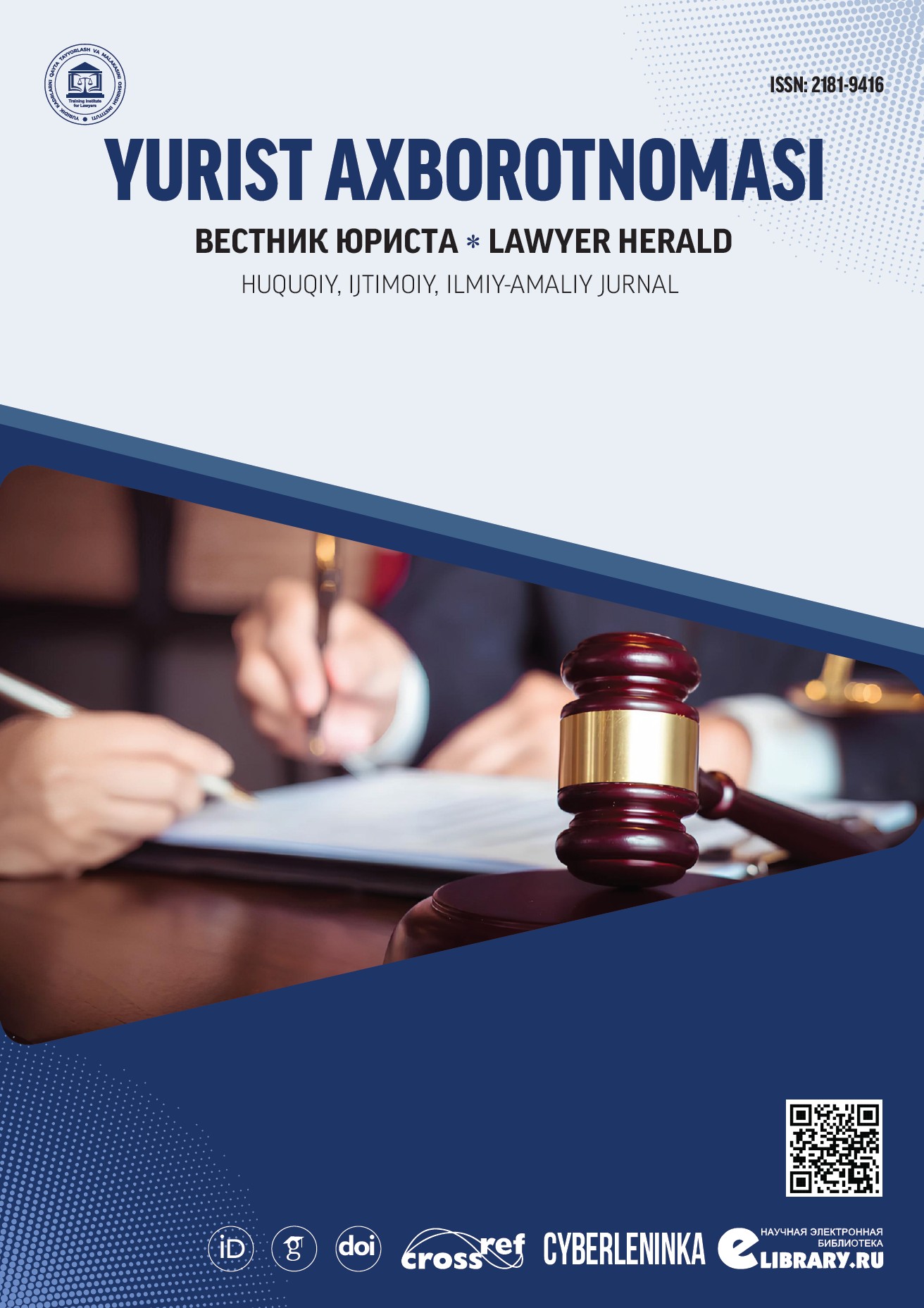Abstract
The governance of transboundary freshwater resources is increasingly recognized as a fundamental component of global security, ecological sustainability, and economic development within both academic and political discourse. Climate change, demographic pressures, and anthropogenic stress are intensifying water scarcity, thereby heightening the risks of international conflicts and posing new challenges to achieving the Sustainable Development Goals. This article provides a comprehensive analysis of the legal foundations of interstate cooperation in the management of transboundary water resources, the concept of water diplomacy, and the mechanisms of regional integration. According to the authorʼs perspective, transboundary waters should be regarded not merely as natural resources but as strategic instruments for strengthening international cooperation, fostering socio-economic development, and reinforcing security architectures. Particular emphasis is placed on the principles of international law equitable and reasonable utilization, the obligation not to cause harm, information exchange, and the equal participation of stakeholders which are evaluated as the methodological foundations of global water policy. The findings demonstrate that the synergy of legal mechanisms, political will, and scientifically informed governance constitutes a key prerequisite for ensuring regional security, sustainable development, and economic integration. Within this framework, water diplomacy is interpreted as an innovative approach to conflict prevention and the promotion of long-term cooperation.
References
Worldometer. (n.d.). Current world population. https://www.worldometers.info/world-population.
Versieux, B. H., & Bahia, G. S. (2023, March 23). International conventions on water. Mundorama. https://medium.com/mundorama/international-conventions-on-water-83f80e87376e
Transchegaraviy ochiq suv oqimlari va xalqaro ko‘llarni muhofaza qilish hamda foydalanish bo‘yicha Konvensiyaga qo‘shilish to‘g‘risida, PQ-683. LexUZ. https://lex.uz/docs/-1331404
United Nations. (1997). Convention on the Law of the Non-navigational Uses of International Watercourses. https://legal.un.org/ilc/texts/instruments/english/conventions/8_3_1997.pdf
Keskinen M., et al. (2021). Water Diplomacy Paths – An Approach to Recognise Water Diplomacy Actions in Shared Waters. Journal of Hydrology, Vol. 602, 126759. https://www.sciencedirect.com/science/article/pii/S0022169421007873#bi005
Krzymowski, A. (2021). Water diplomacy and its strategic significance for Sustainable Development Goals and global security architecture. Sustainability, 13 (24), 13898. https://doi.org/10.3390/su132413898
Raimova, M. (2025, 8 aprel). Укрепление регионального партнёрства: Узбекистан, Таджикистан и Кыргызстан заключили Договор о точке стыка государственных границ. Yuz.uz. https://yuz.uz/ru/news/ukreplenie-regionalnogo-partnyorstva-uzbekistan-tadjikistan-i-krgzstan-zaklyuchili-dogovor-o-tochke-stka-gosudarstvennx-granits
O‘zbekiston Respublikasi bilan Tojikiston Respublikasi o‘rtasida Ittifoqchilik munosabatlari to‘g‘risidagi shartnomani (Dushanbe, 2024-yil 18-aprel) ratifikatsiya qilish haqida [Qonun]. LexUZ. https://lex.uz/docs/-7378957
McCaffrey, S. C. (2007). The Law of International Watercourses (2nd ed.). Oxford, UK: Oxford University Press.
Tanzi, A., & McIntyre, O. (Eds.). (2015). The UNECE Convention on the Protection and Use of Transboundary Watercourses and International Lakes: Its Contribution to International Water Cooperation. Leiden – Boston: Brill Nijhoff.
Paperet, G., & Vose, P. (2023). Enhancing agricultural water-saving technologies and their role in transboundary resource cooperation. Water Governance Journal, 15(2), 45–63.
